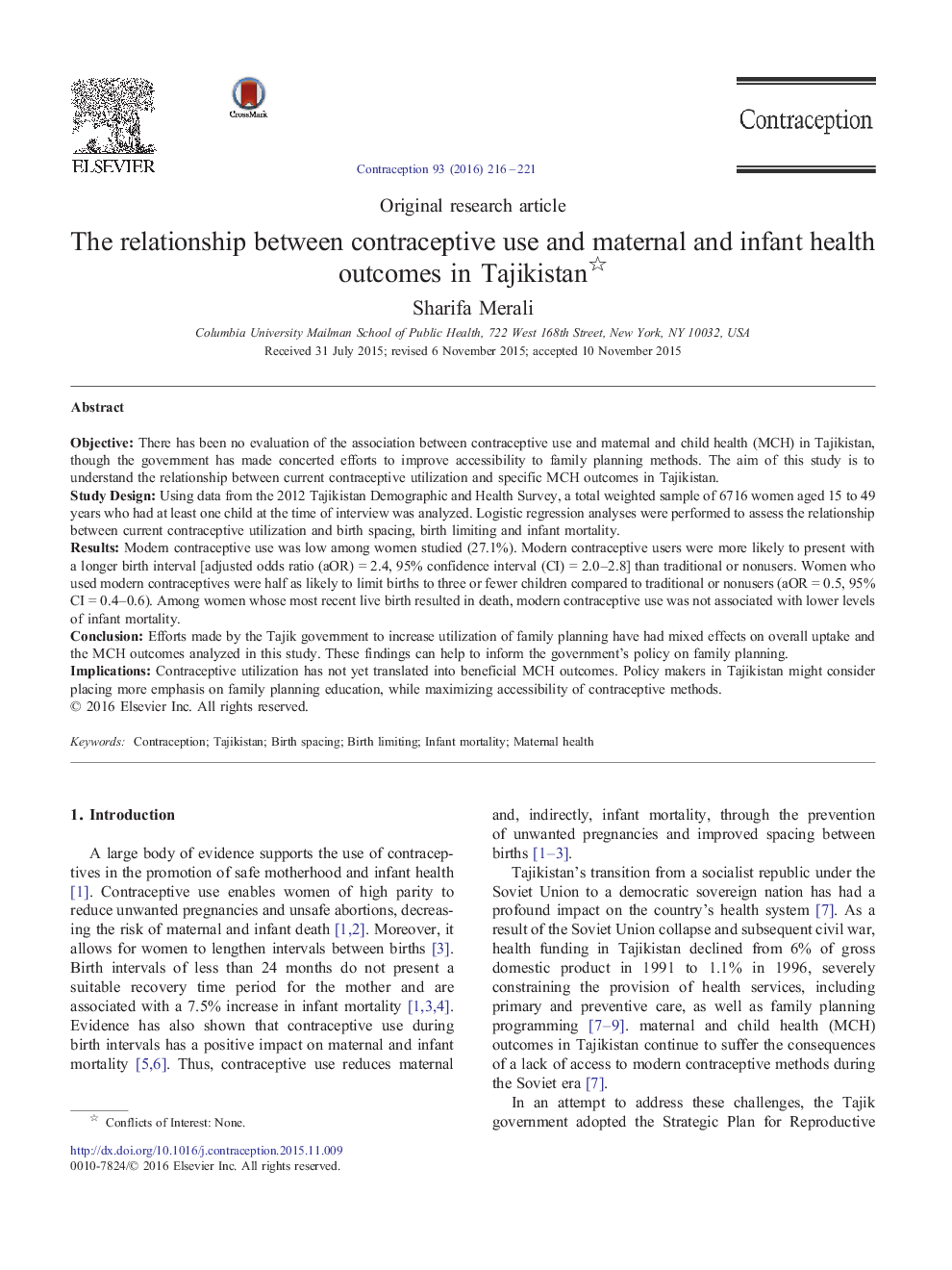| کد مقاله | کد نشریه | سال انتشار | مقاله انگلیسی | نسخه تمام متن |
|---|---|---|---|---|
| 3913171 | 1251419 | 2016 | 6 صفحه PDF | دانلود رایگان |
ObjectiveThere has been no evaluation of the association between contraceptive use and maternal and child health (MCH) in Tajikistan, though the government has made concerted efforts to improve accessibility to family planning methods. The aim of this study is to understand the relationship between current contraceptive utilization and specific MCH outcomes in Tajikistan.Study DesignUsing data from the 2012 Tajikistan Demographic and Health Survey, a total weighted sample of 6716 women aged 15 to 49 years who had at least one child at the time of interview was analyzed. Logistic regression analyses were performed to assess the relationship between current contraceptive utilization and birth spacing, birth limiting and infant mortality.ResultsModern contraceptive use was low among women studied (27.1%). Modern contraceptive users were more likely to present with a longer birth interval [adjusted odds ratio (aOR) = 2.4, 95% confidence interval (CI) = 2.0–2.8] than traditional or nonusers. Women who used modern contraceptives were half as likely to limit births to three or fewer children compared to traditional or nonusers (aOR = 0.5, 95% CI = 0.4–0.6). Among women whose most recent live birth resulted in death, modern contraceptive use was not associated with lower levels of infant mortality.ConclusionEfforts made by the Tajik government to increase utilization of family planning have had mixed effects on overall uptake and the MCH outcomes analyzed in this study. These findings can help to inform the government's policy on family planning.ImplicationsContraceptive utilization has not yet translated into beneficial MCH outcomes. Policy makers in Tajikistan might consider placing more emphasis on family planning education, while maximizing accessibility of contraceptive methods.
Journal: Contraception - Volume 93, Issue 3, March 2016, Pages 216–221
